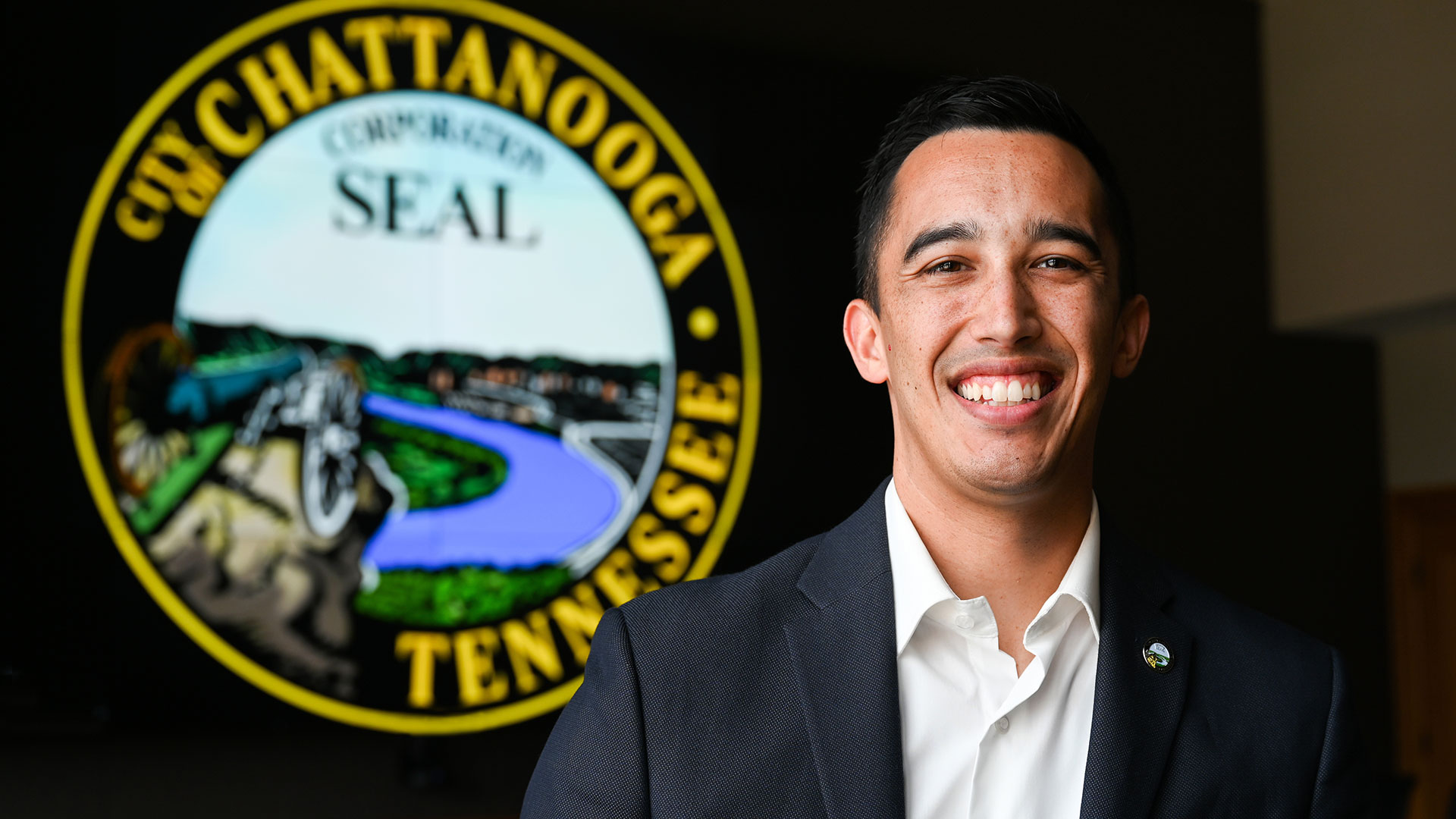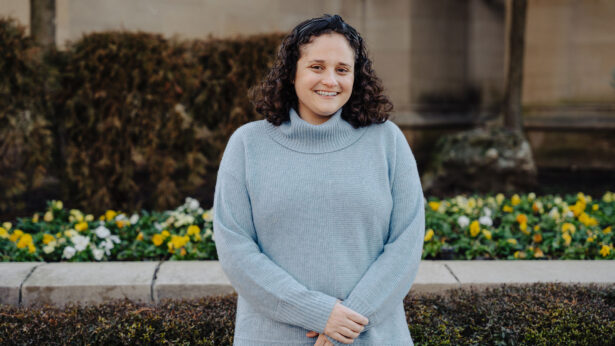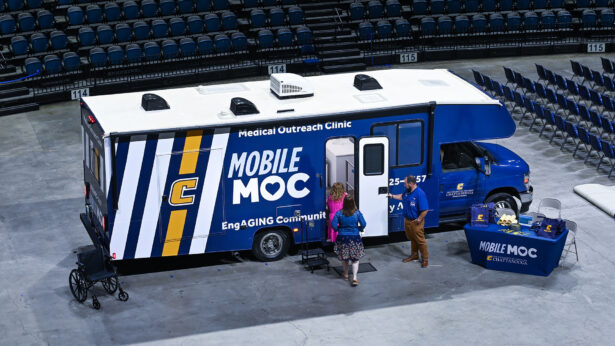For many children, the monsters under their beds are real, and Dylan Rivera, a 2020 graduate of UT Chattanooga, is working to help keep those monsters in check.
As director of policy planning and implementation for the city of Chattanooga, his work directly influences Chattanooga’s minority neighborhoods by helping people “move up from where they are in their socioeconomic status” and making impactful changes for their families.
Many of his efforts have focused on removing K-12 education challenges for students in Chattanooga’s most disadvantaged communities, where outside-the-classroom situations—such as food insecurity, unsuitable clothing and untenable home life—directly impact classroom learning.
“One of the many things I’ve gotten to do is address education gaps plaguing student success. It’s become a real passion of mine,” says Rivera, a first-generation college graduate who majored in political science with an emphasis in public policy and minored in criminal justice. “These are kids living in circumstances and situations that are least ideal by everyone’s standards. Their home life is work for them. It doesn’t allow them to relax, connect with family and reset before the next school day; it further puts them into survival mode because their basic needs aren’t being met there.”
Rivera said people need to recognize the signs and symptoms of trauma and how it impacts children’s decision-making and classroom behaviors.
“We can’t expect these kids to pay attention in math and science classes if they can’t sleep at night because they’ve got someone coming in and out of the house every five minutes at all hours of the night—or live in a neighborhood where they don’t feel safe sleeping. The monsters under their beds are real,” he says.
During Chattanooga Mayor Tim Kelly’s first year in office, he and senior leaders participated in the Bloomberg Harvard City Leadership Initiative—a program for new mayors—and Kelly tasked Rivera with the rather ambitious goal of finding innovative solutions for youth gun violence.
Given the responsibility, Rivera assembled a team of more than a dozen Chattanooga professionals from various disciplines. The group went out into the community and spoke to hundreds of students, organizations, teachers, guidance counselors, principals and “anyone who has a direct impact with students who live in our most disinvested parts of the community to understand what their needs are,” Rivera recalls.
The problem, he says, is more extensive than one issue.
“We took everything that we gathered and created an entire portfolio of initiatives,” Rivera says of the Every Child Initiative, which lays out a series of programs addressing some of the highest needs of K-12 students living in Chattanooga.
The Every Child Initiative portfolio includes:
- Building and launching a mentor matchmaking hub.
- Working with partners to establish a helpline designed with and for students.
- Providing trauma-informed training programs.
- Scaling up the creation of safe spaces, especially before and after school and during weekends.
- Extending hours and services at specific, high-demand community centers.
Programming ranges from creating safer spaces for students to removing food insecurities and providing acceptable clothing and shelter, he says the program tries to provide. “And love, care and attention…someone to lean on when they need to talk about the good and bad moments.”
While direct access to the students isn’t available while they are in class—in Chattanooga, the public school system is housed under the responsibility of Hamilton County—the city can have significant influence outside of that setting.
“That’s where the city now steps up and says, ‘OK, how do we make sure in the hours we can directly impact youth, we’re setting them up for success?’” Rivera says.
“I can’t even fathom a kid who hasn’t eaten in a couple of days and then having to go into the classroom. Our approach recognizes the connection between those two things and fills the gaps that keep students from succeeding in the classroom—allowing them to focus without fear of where their next meal will come from or where they will lay their heads that night.”
In addition, Rivera will soon be rolling out a program that connects students with virtual mental health providers at no cost to the students or their families.
According to Rivera, the end game is simple: Positively impact young people’s lives outside of school so they can thrive during classroom hours.
“I think there’s a responsibility to share with as many people as possible—that these kids in school aren’t just acting up for the sake of it. They’re acting up because there are circumstances around them that they have no control over directly impacting who they are in every other realm,” he says.
“Schools do everything they can to educate students and prepare them for the future. It’s the responsibility of the city and our partners to show up for them in every other way.”



